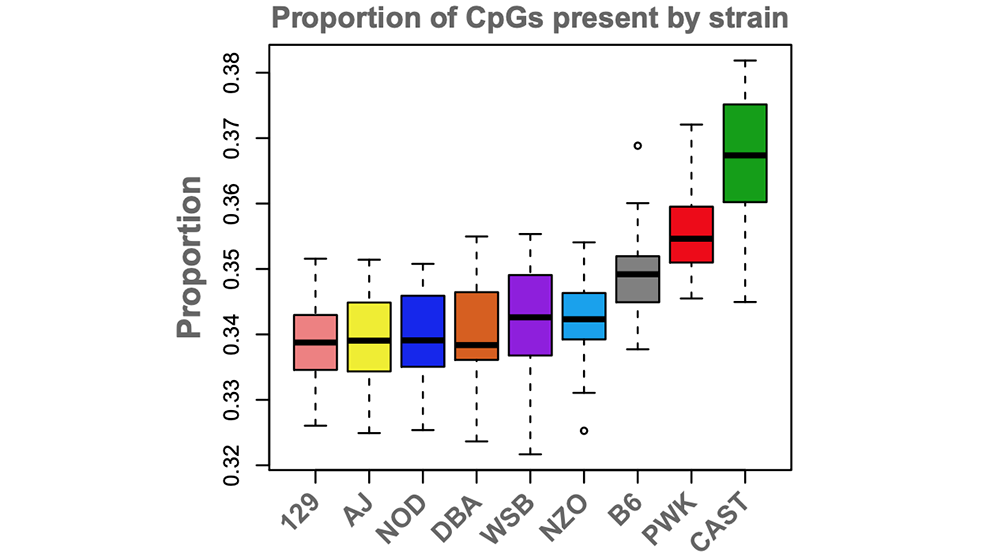
New research finds that the epigenetic landscape is highly variable between the strains of Diversity Outbred mice and is associated with variation in gene expression.
Genome sequences tell researchers a lot about an organism, but they can be misleading in isolation. Many factors influence to how genomic sequence variation contributes to varying traits between individuals within a species. Among these factors, epigenetic modifications—induced by proteins and chemical modifiers that interact with DNA but don’t change its sequence—play a particularly important role. Epigenetic modifications regulate the timing and amount of gene expression, and disruption of epigenetic mechanisms can contribute to dysfunction and disease. Because of this, it’s important to understand how the normal epigenetic state as well as the genomic sequence varies between different genetic backgrounds.
A group led by JAX Professor Gregory Carter, Ph.D., surveyed the histone modifications of the founder strains of Diversity Outbred mice, an important genetically diverse mouse population used to research human disease. They found that the epigenetic landscape was indeed highly variable between the strains and was associated with variation in gene expression. Their results, published in Genome Research, suggest that epigenetic modifications are highly heritable mechanisms of gene expression regulation.
Learn more about epigenetics in a Minute to Understanding video.
Learn more about Diversity Outbred mice.